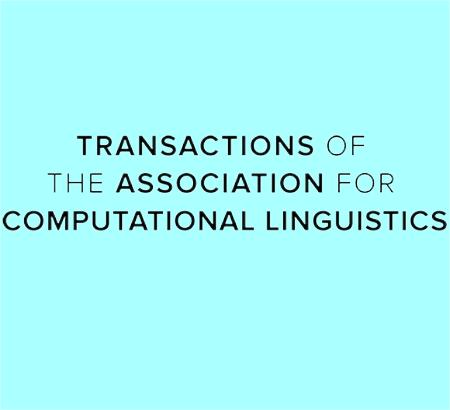Bridging the Gap between Synthetic and Natural Questions via Sentence Decomposition for Semantic Parsing
IF 4.2
1区 计算机科学
Q2 COMPUTER SCIENCE, ARTIFICIAL INTELLIGENCE
Transactions of the Association for Computational Linguistics
Pub Date : 2023-05-01
DOI:10.1162/tacl_a_00552
引用次数: 0
Abstract
Semantic parsing maps natural language questions into logical forms, which can be executed against a knowledge base for answers. In real-world applications, the performance of a parser is often limited by the lack of training data. To facilitate zero-shot learning, data synthesis has been widely studied to automatically generate paired questions and logical forms. However, data synthesis methods can hardly cover the diverse structures in natural languages, leading to a large gap in sentence structure between synthetic and natural questions. In this paper, we propose a decomposition-based method to unify the sentence structures of questions, which benefits the generalization to natural questions. Experiments demonstrate that our method significantly improves the semantic parser trained on synthetic data (+7.9% on KQA and +8.9% on ComplexWebQuestions in terms of exact match accuracy). Extensive analysis demonstrates that our method can better generalize to natural questions with novel text expressions compared with baselines. Besides semantic parsing, our idea potentially benefits other semantic understanding tasks by mitigating the distracting structure features. To illustrate this, we extend our method to the task of sentence embedding learning, and observe substantial improvements on sentence retrieval (+13.1% for Hit@1).基于语义分析的句子分解弥合合成问题与自然问题之间的鸿沟
语义解析将自然语言问题映射为逻辑形式,这些逻辑形式可以根据知识库执行以获得答案。在实际应用中,解析器的性能通常受到缺乏训练数据的限制。为了促进零样本学习,数据合成已被广泛研究,以自动生成配对问题和逻辑形式。然而,数据合成方法很难涵盖自然语言中不同的结构,导致合成问题和自然问题在句子结构上存在很大差距。在本文中,我们提出了一种基于分解的方法来统一问题的句子结构,这有利于对自然问题的泛化。实验表明,我们的方法显著提高了在合成数据上训练的语义解析器(在精确匹配精度方面,KQA上提高了7.9%,ComplexWebQuestions上提高了8.9%)。广泛的分析表明,与基线相比,我们的方法可以更好地推广到具有新颖文本表达的自然问题。除了语义解析之外,我们的想法还可能通过减轻分散注意力的结构特征,为其他语义理解任务带来好处。为了说明这一点,我们将我们的方法扩展到句子嵌入学习的任务中,并观察到句子检索的显著改进(Hit@1)。
本文章由计算机程序翻译,如有差异,请以英文原文为准。
求助全文
约1分钟内获得全文
求助全文
来源期刊
CiteScore
32.60
自引率
4.60%
发文量
58
审稿时长
8 weeks
期刊介绍:
The highly regarded quarterly journal Computational Linguistics has a companion journal called Transactions of the Association for Computational Linguistics. This open access journal publishes articles in all areas of natural language processing and is an important resource for academic and industry computational linguists, natural language processing experts, artificial intelligence and machine learning investigators, cognitive scientists, speech specialists, as well as linguists and philosophers. The journal disseminates work of vital relevance to these professionals on an annual basis.

 求助内容:
求助内容: 应助结果提醒方式:
应助结果提醒方式:


